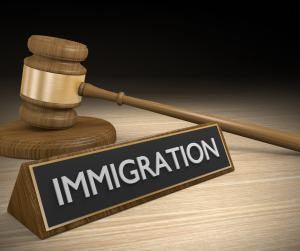
A distribution agreement is a legal commercial contract under which a supplier or manufacturer of goods agrees that an independent third party namely a distributor, sells such goods. The distributor, also referred to as a reseller, buys the goods on own account and trades under their own name by re-selling the goods to his customer.
Key elements typically included in a distribution agreement include but are not limited to:
- Parties involved
- Territory
- Product details
- Area exclusivity
- Term
- Obligations and responsibilities
- Pricing and payment terms
- Termination clauses
- Intellectual property
- Confidentiality clauses
- Dispute resolution
- Governing law
A practical example is the following: Malta One Electronics Business is the manufacturer of smartphones, and they have entered into an exclusive distribution agreement with Malta Two Distribution Business to market and sell their smartphones in Malta. The drawn agreement will outline the terms, responsibilities, and rights of both parties, and it serves to protect the interests of both the manufacturer and the distributor in the distribution and reselling of smartphones.
It’s also important to distinguish between a distribution agreement and a franchise contract. These are not the same; they are distinct legal agreements with different purposes and characteristics. The key difference between a distribution agreement and a franchise contract lies in the degree of control, the creation of a separate business entity, and the use of an established brand. While both types of agreements involve the distribution of products or services, they serve different purposes and have distinct legal and operational implications. A distribution agreement typically focuses on the distribution of products, while a franchise contract involves a more comprehensive partnership, including the use of an established brand and business model.
Distribution agreements can vary significantly depending on the industry, the territory, the specific products involved, and ultimately on the negotiation between the parties. It’s essential for both parties to carefully review and understand the terms of the agreement to avoid any unnecessary misunderstandings and legal battles, and ultimately one should seek legal advice to ensure that their interests are adequately protected. At Sciberras Advocates, as part of our contract law services, we address our client’s requirements, safeguarding their interests. We take pride on the fact that we can draft, review and negotiate any type of contract and agreements in all areas of practice.
This article is for information purposes only and should not be construed as legal advice.
Article written by Ms Charlene Sciberras, B.A. (Hons), guest writer, is a marketing and business administration specialist with a special focus on corporate, accounting, and legal matters.
Sciberras Advocates founded by Dr Adrian Sciberras, is a law firm based in Malta. The firm prides itself to be multi-disciplinary, innovative and flexible in order to meet the changing times and any challenges in the local and international legal scenario. No matter what private or corporate complex demands are called for, Sciberras Advocates offers practical and cost-effective legal solutions to achieve your desired results. You may reach Sciberras Advocates by phone on +35627795222 or via email on [email protected].




